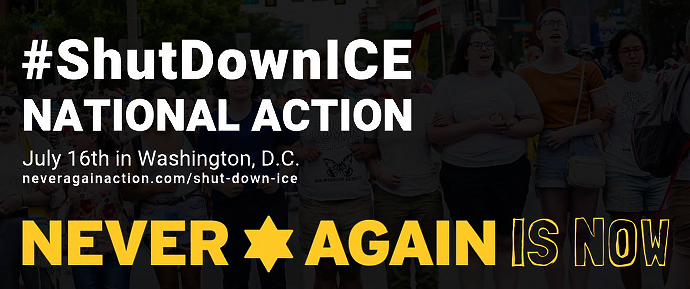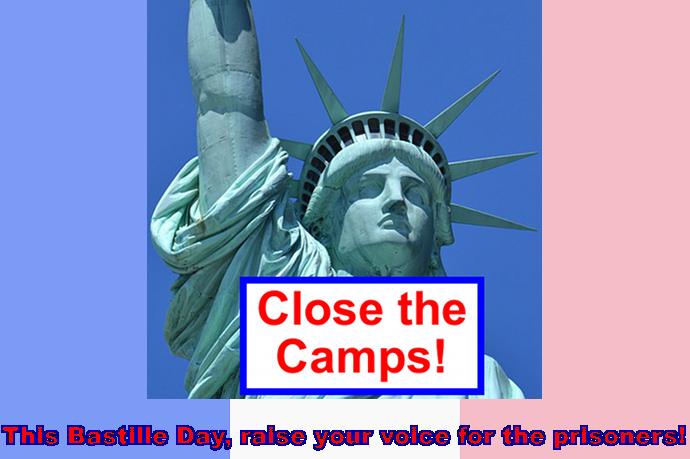July 14 is a traditional day to protest on behalf of the unjustly imprisoned.
July’s #CloseTheCamps protests continue
by Eric Jackson
There have been protests about this subject all month long, starting in a big way on July 1 with Jewish groups protesting and a bunch getting arrested at an ICE facility in New Jersey, then on the July 2 with a demonstration at the White House and at several dozen other places around the USA, then the next day with protesters on the 4th of July in Washington and elsewhere, then vigils and online protests around the United States and the world. Many different groups and individuals are expressing themselves in their various ways.
There are more days yet to come in this cycle. Tomorrow, July 14, is Bastille Day. On July 16 Jewish protesters will be in Washington and other places.
Bastille Day
The actual historical storming of the Bastille, a fortress and prison in Paris, was not the great liberation of political prisoners feat that it was later portrayed to be. In France it marks a symbolic start of that country’s existence as a republic and is their big national holiday.
Around the world among scorned dissidents it means something else. Bastille Day is political prisoners’ liberation day, as it should be.
Will Venezuelans register their protests tomorrow? Set aside their politics — they would have good reason to do so. Will Chinese around the world speak up on behalf of those recently arrested in Hong Kong? Very unConfucian, but it would be justified. Will the friends of Leonard Peltier and other US political prisoners mark the day? We usually do.
But the political prisoner issue of the moment has been children requesting asylum, selected for particularly disgusting abuse for the political purposes of a white racist regime.
Scenes from protests earlier this month:












The July protests will continue, with people in the streets, and people registering objections online and in many other ways. Will you be joining us?

These links are interactive — click on the boxes













